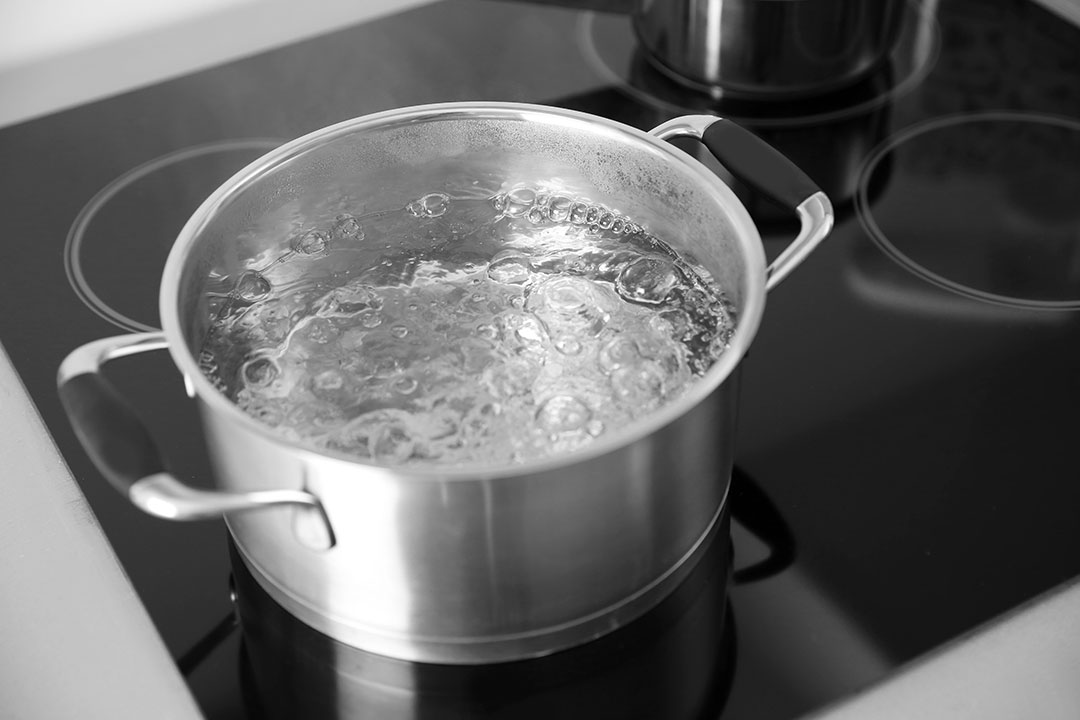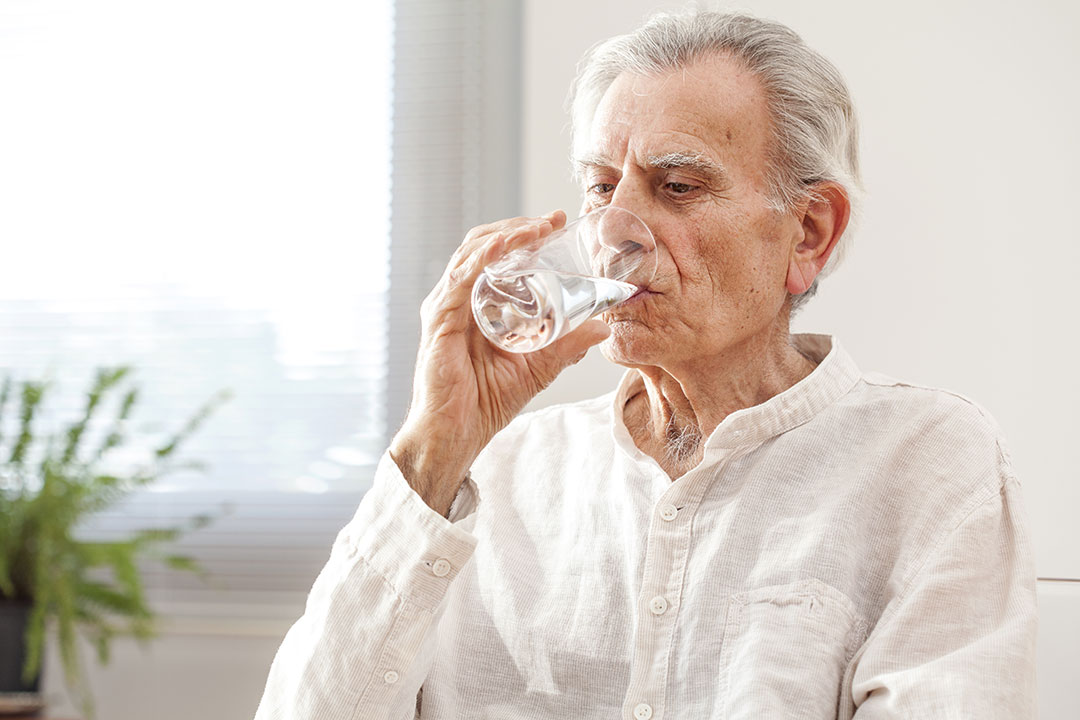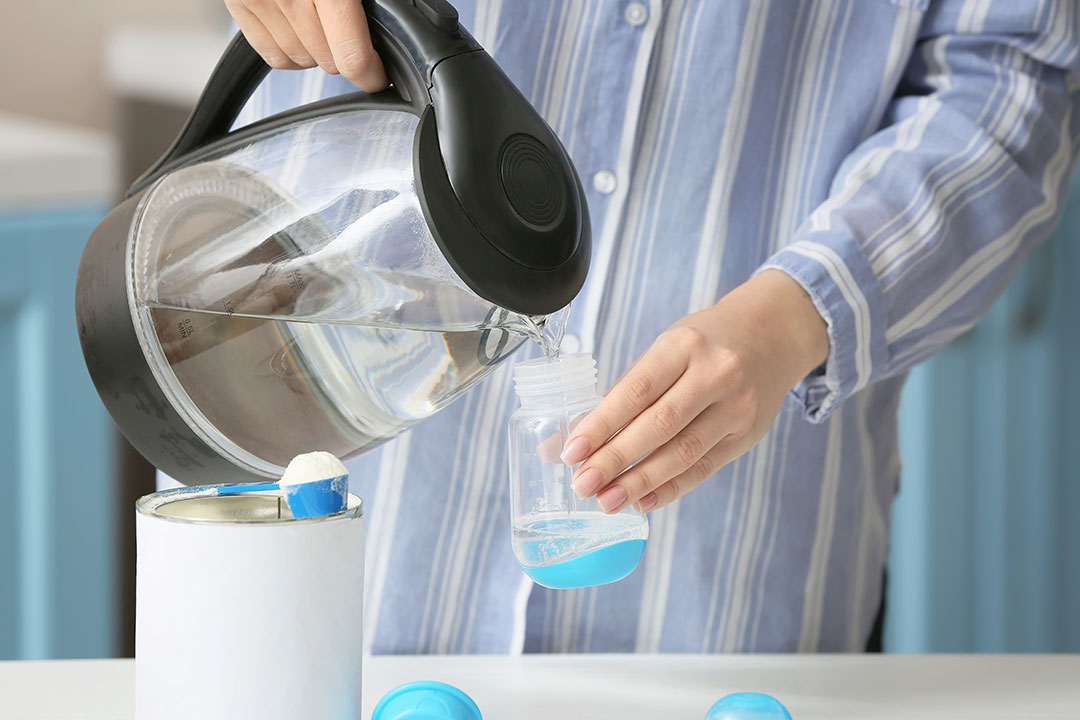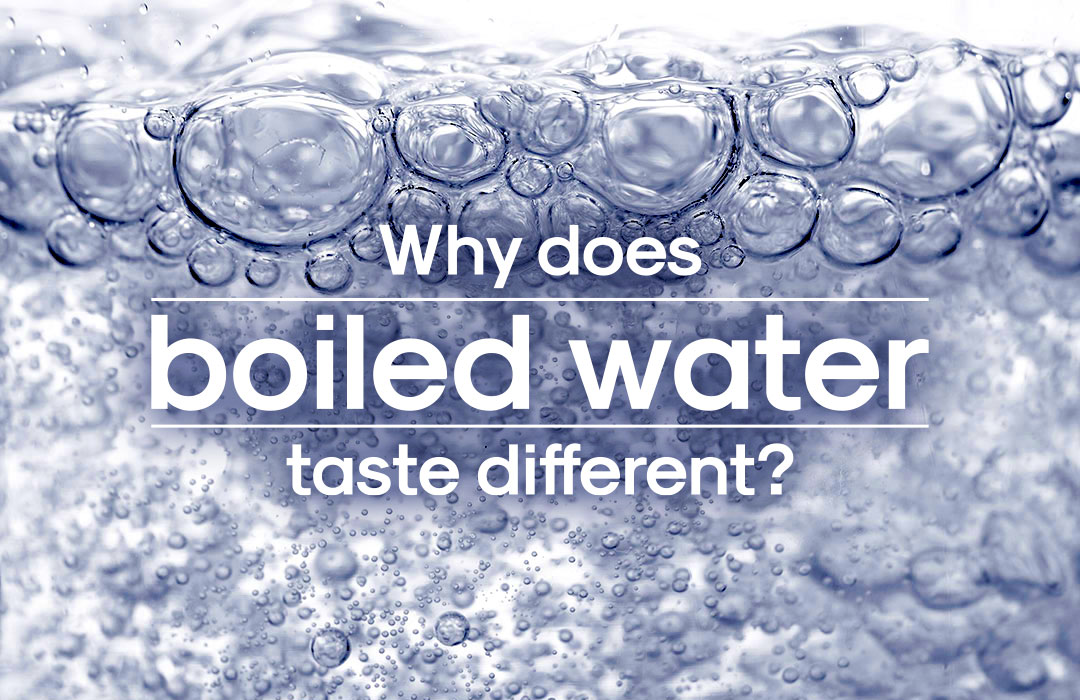Alive Water
Why Does Boiled Water Taste Different?
Water is crucial for the existence of humans and other organisms on earth. It has unique physical and chemical properties, because of which it is essential to treat water properly. But, despite being blessed with an abundance of this precious resource, we are at risk of water contamination for several reasons:
- Organic material suspension in water sources due to water erosion;
- Chemical contamination in the form of nitrogen, metals, and toxins;
- Biological contamination is due to microbes such as protozoans, bacteria, viruses, and parasites;
- Radioactive chemical elements such as cesium, plutonium, and uranium may lead to water contamination. It happens because these matters have altered protons and neutrons that can emit ionizing radiation.
The contaminated water can transmit diseases like cholera, typhoid, hepatitis, diarrhea, typhoid, and even polio. The Center for Disease Control and Prevention reports that these contaminants may lead to certain types of illnesses such as reproductive problems, gastrointestinal issues, neurological disorders, and much more. Above all, immunocompromised individuals are even at a higher level of risk.
In developed countries such as Canada and the United States, the water we receive in our taps is usually safe to drink. However, there are still the chances that some contamination is present until we fill our glasses to drink. Therefore, many of us consider drinking filtered water in some way or the other.
Boiling water is also a water filtration technique that is easy and cost-effective. However, thის type of water has a bland taste, and many of us don’t like it. Curious to know why does boiled water taste different? Let’s dive into it!

What are the common reasons for boiling water?
There are several reasons because of which people use boiled water:
Making Water Safe in Case of Emergency
When you cannot access safe drinking water, contaminated water with germs can be comparatively safer through boiling. That’s the reason why boil water notices are issued when certain unavoidable circumstances cause water contamination in the public water system. The above measure is often taken in case of floods, pressure in the distribution system, aging of the water distribution infrastructure, or any other unexpected reason.
To Avoid Buying Bottled Water
Boiling is an excellent method to kill viruses, bacteria, and parasites, making tap water microbiologically safer. Therefore, you can save money from spending on purified bottled water for drinking purposes. This way, you also contribute to making your environment safer by relying less on plastic bottles.
For the Health of Certain Immunocompromised Individuals
People with AIDs, transplant patients, pregnant women, children, and infants have a weak immune system. This segment is at risk of getting adversely affected by the use of contaminated water. In such cases, boiling water to disinfecting it before use can be a great solution.
To Prepare Baby Food
Another common reason people boil water is to prepare baby formula. According to the World Health Organization (WHO), it is necessary to boil and cool down drinkable water for making baby milk.
To Remove Temporary Hardness in Water
Hard water is very high in dissolved minerals, including calcium and magnesium. When the water is boiled, it causes precipitation of solid calcium carbonate or solid magnesium carbonate. Boiling removes the calcium ions or magnesium ions from the water, leading to removing water hardness.
To Improve Digestion
Sometimes boiled (and cooled) water is given to older adults for improving digestion. Their digestion system is comparatively weaker than younger ones and works better with boiled water.
One important thing that we need to be well aware of is that boiling water only makes it biologically safer, and still, there can be many things or contaminants present in it, such as lead, traces of pesticides, etc.

Why Does Boiled Water Taste Flat and Tasteless?
Many think that boiled water tastes different because boiling might have removed all the essential minerals and salts. But that’s not the case. Boiling water is a helpful technique effective enough only to kill certain bacteria and parasites. Otherwise, even if the water boiling temperature rises above 100 degrees Celsius, it does not remove the whole mineral and salt content in water.
The answer is that cold fresh water, including tap water, has certain gases dissolved in it. Commonly found gases in water include nitrogen (N2 ), oxygen (O2 ), and carbon dioxide (CO2 ). Other than that, it may also contain some inert gases, ammonia (NH3), hydrogen sulfide (H2S), and methane (CH4 ) present in it. The first three are common. However, ammonia (NH3), hydrogen sulfide (H2S), and methane (CH4 ) are the result of bacterial respiration and metabolism. When the anaerobic decomposition of organic matter happens, it drives ammonia and methane. On the other hand, bacterial reduction of sulfate generates hydrogen sulfide.
Some of the dissolved gases mentioned above give water a unique taste. But as soon as we boil it, the dissolved air leaves the water, giving it a flat taste. For example, oxygen dissolves in water in a better manner in cold water than in hot water. Boiling proves to be effective at removing most of the oxygen from water. After cooling down, the boiled water tastes different.
Potentially, there are some other reasons that can add a taste to water when boiled. For example, the material or utensils that are used for boiling. Using steel or iron works better, but boiling water in plastic kettles can give a sour taste to water.
You might have observed that insoluble calcium carbonate or magnesium carbonate forms in the water as it boils. The process can be seen as it starts spreading across the kettle. In fact, this is limescale, and when it reacts with the metal-coated inside your kettle, the water tastes different.

How Do You Make Boiled Water Taste Better?
When boiling water to kill germs and bacteria remains the only option, you can certainly go for it. However, if you don’t like the taste, some techniques can help.
According to the CDC, you can improve the flat taste of boiled water by using two containers. You can pour it from one container to the other and keep it for a few hours. This method of pouring it back and forth from one container to another will help aerate the water once again and bring the taste back.
Another technique is to add a pinch of salt to every liter of water that you have boiled.
How to Boil Water?
Before boiling, the water can be either cloudy or clear. Let’s build some knowledge on how to boil water in each case.
When the Water is Cloudy
If the water is cloudy due to dirt or debris, you first need to filter it and then boil it.
- Use a clean cloth, coffee filter, or paper towel to filter water. You can also allow it to settle naturally.
- Now you can draw off clean water.
- This pure water needs to pass through four stages of boiling:
- The slow simmer stage – This is the early stage of boiling water, and it is the time when heat is relatively low. At this point, the activity level in the boiling pot is lacking.
- The next stage, called the simmering stage, involves the changing of heat from low to medium.
- The Rapid simmer stage involves heat transitioning from medium to medium-high.
- The last stage of boiling water is rolling boil – now the water is at high heat. Boil the water here at least for one minute. ( It is suggested to boil for three minutes at elevations above 6,500 feet ).
- Once you have boiled the water, let it cool down.
- You can now store this water in clean containers and cover them tightly.
When the Water Seems Clean
In case the water is clear and doesn’t seem muddy, you can
- Boil the water unless it comes to a rolling boil for at least 1 minute.
- Cool the boiled water
- Store the boiled water in a container all covered up with tight covers
Why Boiled Water is Not the Ultimate Solution
As we discussed above, boiling water is not the ultimate method of water purification. You can only get rid of one form of water contamination by bringing it to boil, the biological contamination. Various other hazardous contaminants such as lead, nitrates, and pesticides stay in the water even when you keep boiling it for a longer time. In fact, the more you simmer it, the volume of water will reduce due to evaporation, and the concentration of contaminants will further increase.
Also, boiling may seem to be a cost-effective alternative to bottled water, but actually, it can get even more expensive. Expensive in terms of your energy bills and the time it takes to boil it rightfully.
We cannot deny that you will have to wait for a long time to boil water and then cool it down for drinking purposes. Don’t forget that there is always a threat of mishandling the hot boiled water.
Additionally, when you know that your water is contaminated, hard enough, or not in good form, it’s not always possible to boil it in large quantities. Managing boiling water for healthy showers, brushing your teeth, watering plants, and doing laundry can be pretty challenging. The maximum you can do is boil it for drinking.
But still, if, despite boiling water, you cannot get rid of the chlorine, nitrates, and lead content, the effort is not worth it.
So, what’s the ultimate solution? How to make your tap water safer, healthier, and more beneficial? Thanks to the technology and the latest water treatment called The Vortex Water Revitalizer™.
What Is The Vortex Water Revitalizer™?
When water goes through several unnatural treatments or is over-processed with hazardous chemicals, we receive it in a condition where its vitality, natural structure, and properties are almost all lost. During these treatments, the water loses its self-cleaning ability. The water defense system against bacteria and viruses also weakens.
In this water, bacteria can quickly build up. With the use of disinfectants such as chlorine, these microbes are removed. But, adding chlorine further worsens the situation. Firstly, it kills the good bacteria too, and secondly, it potentially changes the taste and odor of water.
Other than these problems, hard water, toxins, and pesticides also ruin the quality of water.
The Vortex Water Revitalizer™ is an evolutionary water treatment solution, far more effective than all other filtration or purification methods. It brings water into a double spiral flow form, which causes implosion in water. With this fantastic product, you regain the natural molecular structure and properties of water, changing the way it feels, tastes, and affects you.
The benefits of using Revitalized Water are the following:
- The water treated with The Vortex Water Revitalizer™ helps in the quick absorption of water into your body. Due to the micro-clustered, natural molecular structure, the revitalized water gives your body a new form of energy. All the digestive issues for which you consider boiling water time and again are resolved.
- Oxygen, which is often lost in case of boiling, is essential for our bodies. These important gases disappear as a result of boiling, leaving the taste of the water disappears or flat. But in The Vortex Water Revitalizer™, the amount of dissolved oxygen is increased, which fill water with vitality, making it extremly beneficial to use.
- Without changing the water taste, you can soften the water with he Vortex Water Revitalizer™, and the chances that metals from boiling utensils dissolve into the water also decrease. The softened water will not cause any irritation on the skin or scalp. So, you can use Revitalized Water for bathing and showering, which will make your skin smoother and the hair silkier.
- Another key benefit of this treatment is that it reverses the polarity of pesticides, nitrates, or toxic heavy metals. That’s for sure not possible if you only boil water.
- You can store the revitalized water for an extended period as it is free of bacteria and does not go bad.
For more information on various models and options available according to your specific needs, visit our shop.
Conclusion
Water is a basic necessity of life, and we all are dependent on this unique substance one way or the other. However, water contamination can ruin its properties and may cause some fatal diseases. Boiling the water can help in killing certain germs, but it may change the water taste. You may aerate the water to improve the taste, however, this is not a complete solution. The Vortex Water Revitalizer™ can help us regain water’s natural properties and energizes our bodies as they should be.



Related Blogs
Discover a World Where Water Works Wonders with the Vortex Water Revitalizer
The transformative power of water is something that speaks directly to the core of our [...]
Feb
Structured Water: Is It Worth the Hype?
Over the past few years, water and its benefits have taken the internet by storm. [...]
Aug
Best Whole House Water Filters Systems of 2023
Clean water is an indispensable resource, especially for our health. In order to reap the [...]
2 Comments
Feb
Water Experiment By Dr. Masaru Emoto
Dr. Emoto Believed, “Water is the mirror that can show us what we cannot see. [...]
15 Comments
Jul
Why Does Boiled Water Taste Different?
Water is crucial for the existence of humans and other organisms on earth. It has [...]
Aug
Experiencing Positive Change with the Vortex Water Revitalizer
In the world of business, customer feedback is a treasure trove of insights. It not [...]
Dec
How Can Agriculture Improve Water Quality?
Agriculture is still one of the leading economic activities in large parts of the world. [...]
2 Comments
Sep
How do I filter my swimming pool water?
Finally, we’re leaving the cold months behind and in just a couple of weeks, summer [...]
Apr